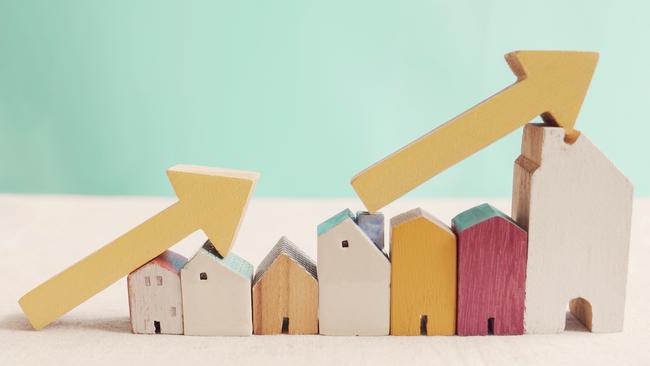
The national average rental increase over the last year is 14 per cent against an annualised inflation rate of 6.1 per cent.
In selected hot spots rent increases are more than triple the inflation level: House rentals in Sydney and Brisbane are up 20 per cent, in Melbourne unit rentals are up 19 per cent, according to property research specialists SQM.
Moreover, the move to substantially reopen immigration is set to underpin the market in the months ahead.
“I can never remember a time when rents were rising so quickly, I think you would have to go back to the 1970s,” says AMP chief economist Shane Oliver.
The view is confirmed inside the industry, with the CEO of the Real Estate Institute of NSW, Tim McKibbin suggesting: “Our members are telling us they have never experienced such a lack of supply.”
A rapid change to investment conditions in the residential markets has reversed the exit of investors recorded during the pandemic. Private investors are now returning to the market, lured by the prospect of improving income and solid long-term returns.
In fact, property investors are now a bigger part of the overall residential market than they were at the peak of the last cycle back in 2015. Monthly residential investor lending is running at a massive $11.6bn (excluding refinancing).
A recent property industry report suggested that property investors had not been able to drive rentals up higher than inflation through the last decade.
The report, from the Property Council in conjunction with the Property Investment Professionals of Australia, said the average rent increase has been around 1 per cent per annum — against inflation of 2 per cent per annum over the last decade.
However, the claim has been roundly criticised for depending on Australian Bureau of Statistics figures that capture overall rent activity but do not specifically monitor rental changes: The format creates a serious lag in recording the realities of the market.
SQM’s Louis Christopher has branded the data as “dreadfully wrong”.
“The ABS numbers are way off in terms of what is going on in the rental market: They seriously need to review it,” he told The Australian.
Investors who already hold unencumbered (or unmortgaged) investment property are the immediate beneficiaries of the income boost, while new investors are betting that expanding rental income will improve cash flows from property, and waiting out what could be a shorter than expected downturn.
New investors are also weighing the prospect that the current consensus of a 15 to 20 per cent drop in house prices may be excessive – the peak to trough fall in house prices for the combined capitals so far is an extremely modest 2.7 per cent.
Tim Toohey, head of macro and strategy at Yarra Capital, says the current conditions reflect a most unusual set of conditions. “You also have to keep in mind there has been excess liquidity in the market and in the same way people went into the sharemarket last year — they also went into property investing.”
The lift in rentals has corresponded with a lift in rental yields inside the sector for the first time in years – yields will automatically increase with price drops but rentals increases also add to the outcome.
Rentals were also suppressed during extended periods of the pandemic, when state governments introduced an emergency moratoriums which banned property owners from evicting tenants. The pandemic period also saw bank regulators introduce so-called “macroprudential limits” which cut off investment lending activity among the major banks.
The outlook for the rest of 2022 is certainly mixed, with building approvals dropping of late — a factor that indicates there will be no major changes to rental supply levels in the near term.
Meanwhile, the bond market has trimmed back its estimates of a peak for official cash rates from 4 per cent closer to 3 per cent, while economists are already questioning whether it is time for the Reserve Bank to cool the pace of its official rate escalation.
It is estimated that it takes at least three months for rate rise to fully impact the wider market, and the RBA has put through a string of quick increases to get to the current official rate of 1.85 per cent.








Despite softening prices, rental from investment property is proving to be the ultimate inflation proof income this year, with income growth running at double the annualised inflation rate across all cities.